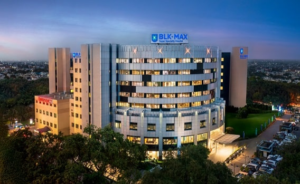
Urological issues affect many of the population, particularly as individuals age. These conditions may range from common infections and kidney stones to more complex matters like prostate enlargement and urinary tract cancers. Many patients tend to ignore early symptoms, which can lead to more severe health complications if not diagnosed and treated at the right time. Recognising early signs and seeking medical attention is crucial for effective management.
Urology is a medical speciality that deals with conditions related to the urinary tract and male reproductive organs. Those living in metropolitan areas like Mumbai have access to high-quality medical care. Leading healthcare institutions like Nanavati Max Super Speciality Hospital offer comprehensive services in urology Mumbai, ensuring timely diagnosis and appropriate treatment options for both men and women.
Common Urological Problems
Urological conditions can present in different forms, with unique symptoms and causes. Below are some of the frequently encountered problems and their general characteristics.
-
Urinary Tract Infections (UTIs)
UTIs are among the most frequent urological problems, especially in women. Symptoms include a burning sensation while urinating, frequent urges to urinate, and lower abdominal discomfort. Bacterial infections typically cause UTIs and can be treated effectively with antibiotics. However, recurrent infections may indicate underlying issues, including antibiotic-resistant bacteria, requiring alternative prophylactic or non-antibiotic therapies.
-
Kidney Stones
Kidney stones form when minerals crystallise in the kidneys, leading to intense pain, nausea, and urinary difficulties. Small stones may pass naturally, but larger ones often require medical procedures such as shockwave lithotripsy or ureteroscopy for removal. Proper hydration and dietary adjustments are essential preventive measures, including reducing oxalate-rich foods and moderating calcium intake, depending on the type of kidney stones.
-
Benign Prostatic Hyperplasia (BPH)
Common among ageing men, BPH refers to the non-cancerous enlargement of the prostate gland. Symptoms include weak urine stream, difficulty starting urination, and frequent urination at night. Medications or minimally invasive procedures such as Transurethral Resection of the Prostate (TURP) are common treatment approaches. Other minimally invasive options, such as Rezūm water vapor therapy or UroLift, are also increasingly used for BPH.
-
Incontinence
Urinary incontinence involves the involuntary leakage of urine and affects both genders. It can result from muscle weakness, nerve damage, or underlying health conditions. Treatment varies from pelvic floor exercises and medications to surgical interventions in more severe cases. Advanced therapies, such as sacral nerve stimulation or botulinum toxin injections, can be effective for certain types of incontinence.
-
Urological Cancers
Cancers of the kidney, bladder, and prostate are some of the more serious urological conditions. Early detection significantly improves outcomes. Newer diagnostic tools like molecular biomarkers and advanced imaging techniques like PET scans are improving early detection rates. Treatment may include surgery, chemotherapy, radiation, or targeted therapies.
-
Suggested Treatment Approaches
A timely diagnosis can significantly impact the effectiveness of treatment. Many urological issues can be resolved or managed well when addressed early. Advanced facilities in Mumbai combine skilled clinical expertise with state-of-the-art tools to deliver holistic urological care.
The treatment of urological conditions depends on various factors, including age, severity, and overall health. Most modern hospitals in Mumbai, particularly those specialising in urology Mumbai, follow a multidisciplinary approach to ensure comprehensive care.
- Medical Management: Oral medications and lifestyle changes often suffice for early-stage issues like UTIs or mild BPH.
- Minimally Invasive Surgery: Procedures like laser lithotripsy for kidney stones or TURP for prostate enlargement offer faster recovery times and lower risk of complications.
- Advanced Surgical Interventions: In cases of malignancy or complex structural issues, surgeries such as nephrectomy or bladder reconstruction may be necessary. These are typically carried out in high-tech operation theaters with robotic assistance.
- Supportive Therapies: Physiotherapy for incontinence or nutritional counselling for kidney health often complements primary treatment.
When to Seek Medical Attention
It’s essential not to delay consulting a healthcare provider if you experience symptoms such as:
- Persistent lower abdominal pain
- Blood in urine
- Changes in urination pattern
- Difficulty or pain during urination
- Recurrent urinary tract infections
Early intervention not only improves quality of life but also prevents complications that may require more aggressive treatments. Residents seeking reliable care in urology Mumbai should consider consulting a specialist at a reputed facility.
Lifestyle and Preventive Measures
Preventive care plays a vital role in maintaining urological health. Simple daily habits such as drinking plenty of water, maintaining good personal hygiene, and reducing salt and protein intake can help prevent kidney stones and infections. Regular screening is advisable for individuals with a family history of urological disorders, especially prostate or bladder cancer. Men above 50 are encouraged to undergo routine prostate checks, while women should consult a urologist if experiencing recurrent UTIs or incontinence. Weight management and pelvic floor exercises can also lower the risk of several urinary issues. Smoking cessation is another crucial step, as tobacco use increases the likelihood of bladder and kidney cancers.
Generalization of Access to Care in Mumbai:
While high-quality care is available in Mumbai, it is essential to recognise that access to healthcare facilities can vary significantly between urban and rural areas in India. Rural populations may face challenges accessing advanced urological care, highlighting the need to improve healthcare accessibility across all regions.
Conclusion
Urological issues may seem minor initially but can develop into serious complications if left untreated. From routine infections to complex surgeries, urology offers numerous treatment avenues tailored to individual patient needs. Timely consultation and personalised treatment are key to managing these conditions effectively.







